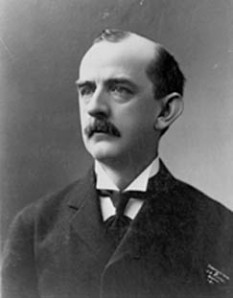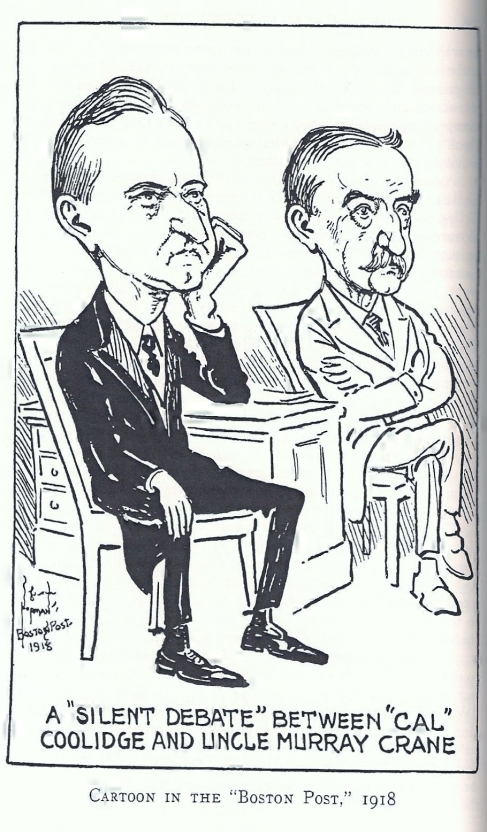“This Governor of Massachusetts, deep in public service, was by temperament a private man. In public reticent and unwilling to speak, he conversed constantly in closed meetings, in quiet conferences, and on the telephone….he never said more than he had to, and he said it once…His program was not one of sweeping changes, but one of small steps toward his goals: curtailed expenditures, reduced indebtedness, and increased legislative self-discipline…His administration was unspectacular and widely praised; he had not been expected, or elected to introduce grand reforms…He was the classic man-behind-the-scenes. Avoiding limelight and applause, he was a man who ‘knew,’ a collector of information, an acute observer who had many sources…With an easy private approach to individuals, he won their confidence; with sound perceptions, he gained their respect. His colleagues knew that he could keep a secret. He was honest, not extravagantly frank, and eminently sensible, with a deep knowledge of men and a wide grasp of affairs” (Carolyn W. Johnson’s book, pp.24, 29, 39).
One could read these descriptions and easily mistake them as a characterization of Calvin Coolidge. They were, instead, all about the man who had served as Governor while Coolidge rose in county politics, married Grace and found a living demonstration of the principled public service he would come to exemplify. The man was Winthrop Murray Crane. Nineteen years Coolidge’s senior, Crane had begun in business, working up through his family mills to secure the contract for printing paper currency for the nation.
He would establish a solid record as Governor, earn appointment to the Senate to complete the term of the late incumbent and serve eight years in Washington, returning again to a quiet service in his home state in 1913. It would conveniently coincide with Coolidge’s election as President of the State Senate, giving the younger Coolidge the benefit of Crane’s political wisdom and approach to leadership.
When older men fail to exert the influence for good and young men take the advantage of experience for granted, society suffers for it. When young men instead seek out their peers or surround themselves with equally short-sighted “mentors,” devoid of character, rights and responsibilities are both at risk. Like the naive young Rehoboam in 1 Kings 12, who divided the kingdom because of his pride, we are living in times that need wise men and women.
In offering his thoughts on so valuable a friend, worthy example and faithful public servant, President Coolidge, writing five years after the great man’s passing, introduced a biography of him entitled, “W. Murray Crane: A Man and Brother,” with these words: “More people trusted him than any one else of who I can think, because of his broad human sympathy. He seemed to have a fellow feeling for every one to such an extent that he could make their wants and desires his own. He had a broader comprehension of American life, reaching from the humblest fireside through all the various activities of the business and political world, than any other man of his time. Of course many others excelled him in special directions and in details, but in the broad grasp of the whole he had no superior. He was a product of that intensive effort that has long characterized the men of prominence in his region, one of the best examples of American life on both its material and spiritual sides. The world is distinctly better because he lived in it.”
Though rising to the Presidency some day may not be in our future, we can resolve to exercise integrity and genuinely demonstrate for the young what trustworthy service and sound judgment are supposed to be. Who knows what powerful examples for good we can leave? It may be that we are the next Mr. Crane to a future Calvin Coolidge.
Included in “Calvin Coolidge: The Man From Vermont” by Claude M. Fuess

